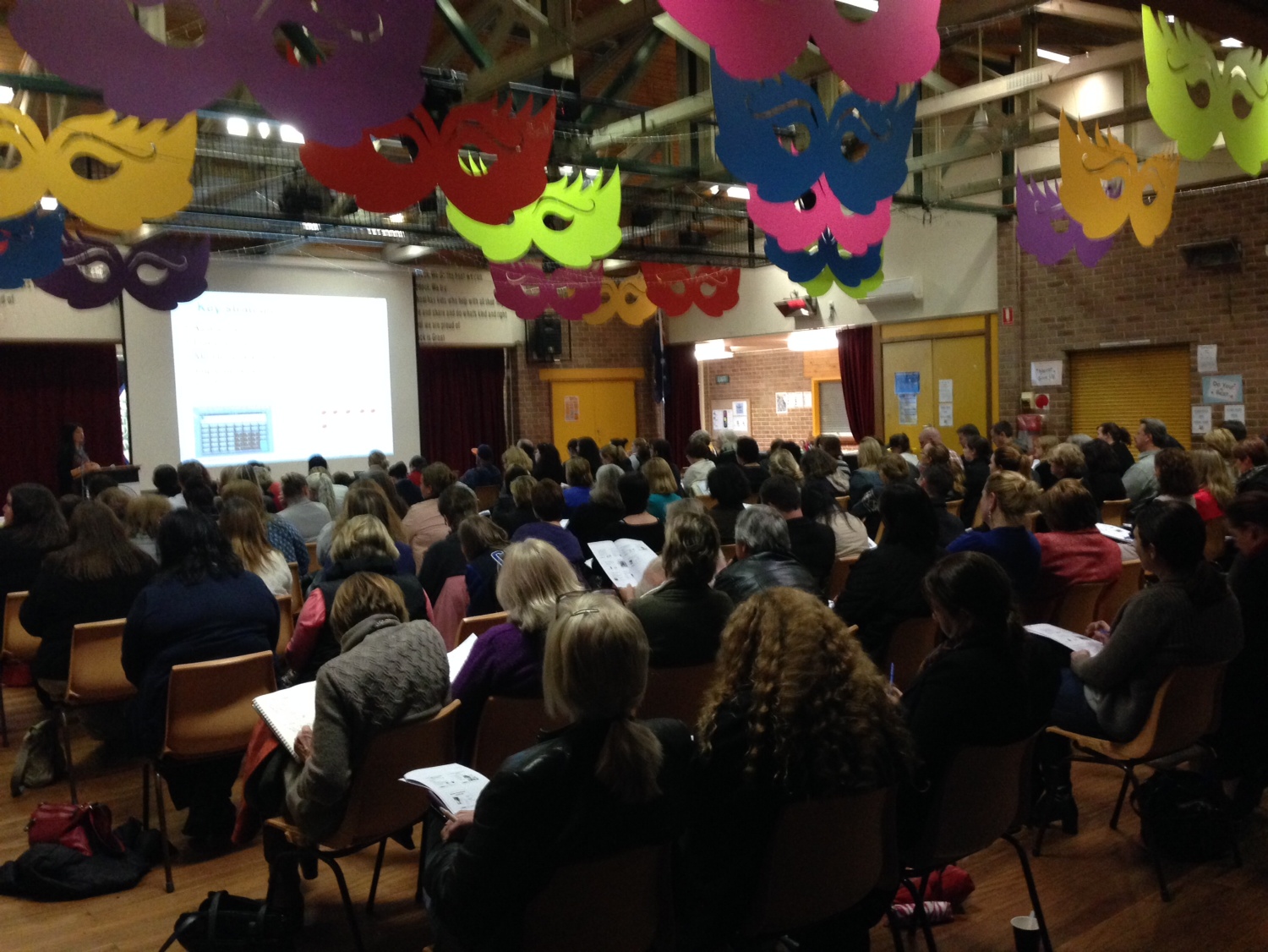
Learning difficulties the questions teachers ask
August 19, 2014

Yesterday 160 teachers, psychologists and other school professionals in NSW gave up their afternoon to attend our Five common learning difficulties: Key teaching strategies presentation.
The two hour presentation, hosted by Braddock Public School, was jam-packed with the six key teaching strategies for learning difficulties, followed by specific recommendations for the learning disabilities associated with ADHD, dyslexia, dyscalculia, working memory, and poor processing speed.
Below are two questions that were asked by participants at the presentation.
Can working memory be increased?
In short, the answer is no. While working memory capacity does increase as the child matures, it is thought to stop developing around mid-adolescence. While you cannot increase working memory capacity you can learn strategies, such as chunking, rehearsal, and visualization, to help shift information into long-term memory. These strategies help to reduce the load on working memory freeing it up to be more able to pay attention, process questions, infer and comprehend what is being said, written or read.
There are commercially available programs that claim to increase working memory. While the research does support some very small increases after using these programs, particularly in visual working memory, at this stage the evidence does not support the generalization of these skills. That is, the improvements do not transfer to every day life. Click on the link for more information on strategies to take the load off working memory.
Is there an assessment tool for dyscalculia?
Currently I am not aware of an assessment tool for dyscalculia. There is a screening tool for dyscalculia developed by Professor Brian Butterworth that can provide an indication of whether the child has dyscalculia. However when making a diagnosis of dyscalculia a psychologist must consider a range of factors including an assessment of intelligence, the child’s developmental history, and rule out other factors that may be contributing to the child’s poor performance in mathematics. For more information please refer to the Psych4Schools ebooklet Working with children with dyscalculia.
What questions do you have about learning disabilities? Let us know below.
Interested in attending our seminar on learning difficulties in Melbourne next week to have your questions answered? Sign up now.